Let’s face it, as a tourist, we’re the target of every trick in the book. These people spend years perfecting their scam tactics. There’s no way to completely avoid every scam because they strike when we’re tired, distracted, and in a rush – when we’re the most vulnerable. Some scams are even built-in to the society and everyone plays along like it’s no big deal! Refresh yourself with these tips to avoid tourist scams so you can feel more confident in your travels.
You can read my full list of sneaky stories we’ve seen, but #AintnobodyGotTimeForThat
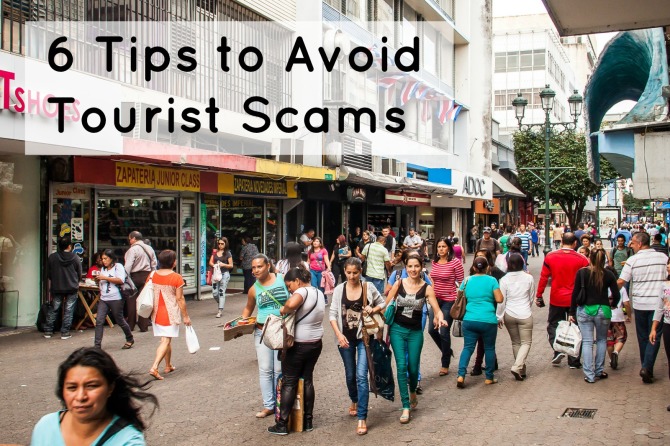
The best you can do is prepare yourself for what to expect and how to avoid the most popular tricks.
Tip #1 – Be Aware To Avoid Tourist Scams
The most important thing to remember in every situation is to stay alert, even if we’re tired or going somewhere you’ve been 20 times already! Take notice every thing out of the ordinary.
Especially if someone bumps into you.
People in Latin America are extremely good at walking in a busy crowd of people without touching, so if someone bumps into you, double check your pockets!
There’s always funny stuff going on at border crossings and when changing money, so pay special attention there!
Tip #2 – Trust Your Gut
Gut feeling, that is… My gut is always good at finding something tasty to eat, but it’s also the best tool we humans have for smelling a bad scam.
Don’t leave your instincts at home and say, “Well, it’s a foreign country and they do things differently.” Often the odd feeling is just a difference in culture, but many times it isn’t – don’t just ignore it!
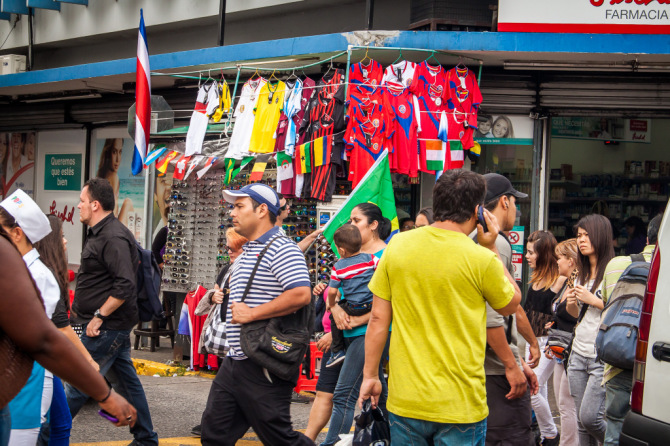
Tip #3 – Don’t Rush
Scammers are in-control of every scammy situation.
That’s why they know how to come out on top. They know how to push people’s buttons to make us rushed, stressed, and forgetful. That’s the most vulnerable time for a traveler, when we’re least likely to recognize a bad situation.
We all know that everyone’s in a hurry, especially in big cities. But if someone’s incessantly rushing me too much, it triggers an alert to watch out for something scammy. If they can get you our of your comfort zone, then they’re in control.
The Sloooow Change Giver Tourist Scam
Just the other day I bought a hamburger for 2,750 colónes. I gave the lady a c10,000 bill, and she fumbled around for a minute and gave me back some bills and a few coins. I looked at the 3 blue c2,000 bills and a few coins for a few seconds trying to do some simple subtraction in my head – it didn’t seem enough.
After watching me for more than a moment’s hesitation, she slowly handed me another red c1,000 bill. She had wanted me to rush off with the first blue bills she’d given me and leave her with a c1,000 ($2) tip!
Not so fast Miss Sneaky!
Click here for more sneaky stories!
Tip #4 – Watch Your Back
Scammers know that nobody has eyes in the back of their head. They use this to their advantage all the time because of how trusting tourists are! It’s child’s play!
All it takes is for me to turn my head for 2 seconds in a busy, noisy place for someone to grab my bag that’s beside me. And if I’m distracted, it’s even easier for them!
We travelers often find ourselves waiting for hours – in a terminal, on a bus, and in lines where it’s tough to stay focused and watching our backpacks the whole time. The key to relaxing while staying vigilant is to be touching your bag or have your foot through a strap.
Some people use wire locks around table legs, but that’s a bit overboard and draws a lot of attention. All you need is to keep a hand on it and you can focus on reading a book or filling out those dreaded customs forms.
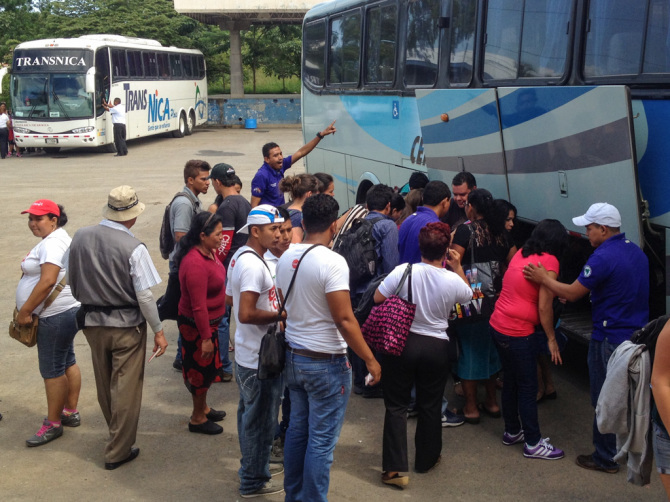
Even the Locals Get Tricked!
We were walking through San Jose, Costa Rica with some friends one day and I offered to carry my friend’s bag. He handed me a small backpack and mentioned something about wanting to keep his bag with all his valuables in it with him, since he was a “local” – born and raised in Guatemala, and not trusting it to an American. I laughed and thought he was probably right!
We soon parted ways with the group and I gave him his bag back. I learned later that his “expensive” bag was stolen right out from under his eyes! He went with the group to McDonalds and a few of them were watching the pile of luggage. When they got up, his bag was gone! They asked McD to look at their surveillance video and they saw someone sit down next to him and tug the bag away from under a chair with his foot. The thief picked up the backpack and walked out before anyone could think twice! Even the locals daydream and let their guard down!
Tip #5 – Trust Others, But Not Too Much
I love being able to trust people along my travels because they’re so friendly and helpful. Often much more so than in the US. This is one of the greatest joys of traveling, and helps you get close to people and appreciate their culture.
But, scammers know this, and prey on trusting people. There’s a fine line between trusting someone and putting too much trust in them.
A good rule to follow is to trust people who want to help, but stay in control of the situation.
A Simple Example – someone wants to help me exchange money. Cool, they may know a good place to go to. They offer to take my money down the street and will bring it back to me in the new currency. Bad – by giving him my money I no longer have control of the situation.
It’s an obvious example, but shows how it’s ok to trust someone up to a point, and then say “No, thanks.” If he’s really believable, some people may fall for it – even if only 1% of the people he tries to help fall for the trick, he’s set to make a lot of money, and it keeps him in business!
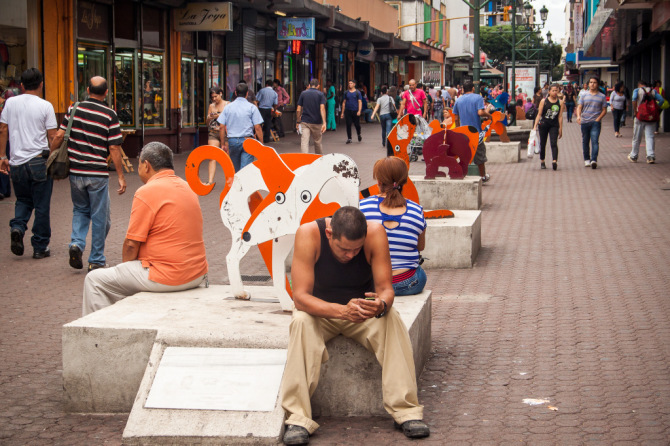
Tip #6 – Ask The Locals
The locals are the best source of true prices for anything – from bus tickets to hammocks, and food. Ask your taxi driver or someone at the bus terminal about how much a normal bus fare costs to such-and-such a place and you’ll have an idea of you’re getting scammed or how much to haggle for a fair price. Sometimes you might need to ask a few people and average them to get a better answer.
Built-In Scams
Most places we’ve visited that have an entry fee have a separate price listed for tourists and for locals. Sometimes we “foreigners” have to pay 5-20 times the price that a local would pay! These aren’t really outright scams, but in the US it’s called discrimination and is asking for a million dollar lawsuit, ha! I totally understand the price hikes for tourists in most places, but it’s not always as fair as we’d like.
The good thing is, not everyone is out to get us travelers. They’re just trying to survive with their businesses. It’s important to be more cautious than we were back home, but still have fun and trust people along the way.
Most locals are surprisingly honest when travelers buy something and gesture with their fan of money for them to take whatever it costs. I’m always amazed how that works!
I don’t know where people get trust like that, but some people haven’t used cash in the last 10 years and don’t have a clue. Always try to figure out how much you owe and how much change you should get back.
Have fun traveling, and always keep an eye out for a sticky situation for avoiding tourist scams!
Leave a comment below with the trickiest scam you’ve seen!
This post is linked up with the #WeekendWanderlust Link Party.




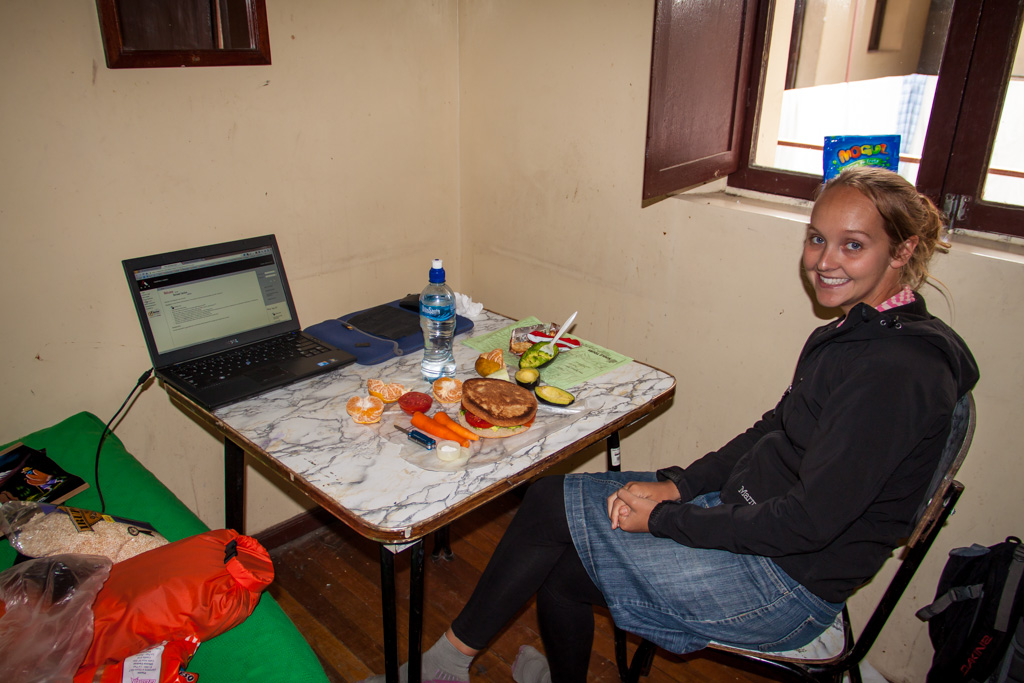

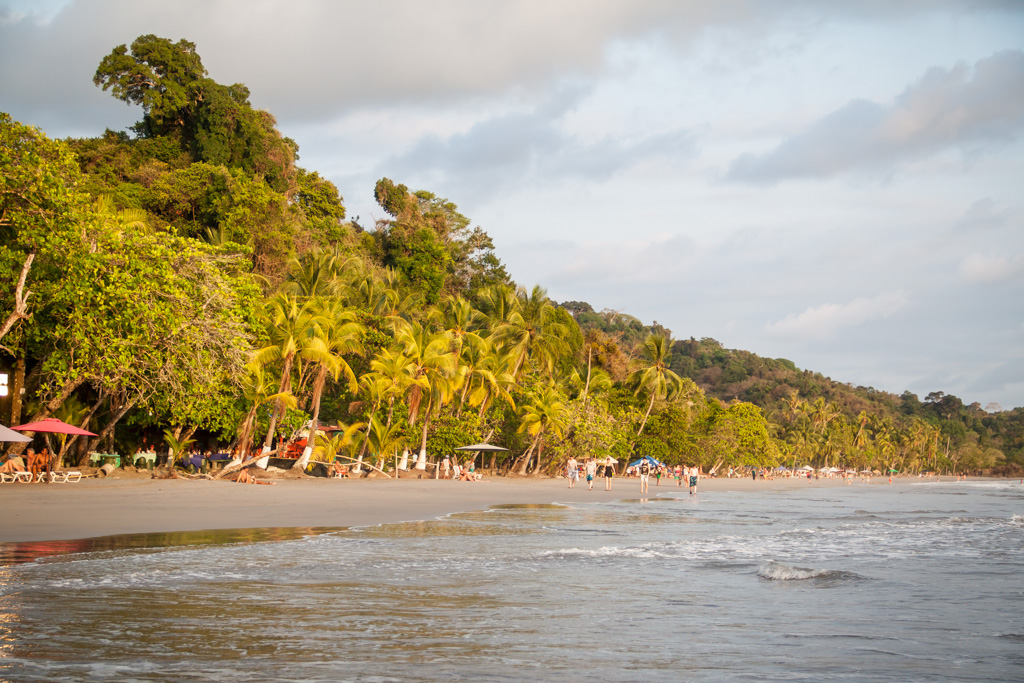
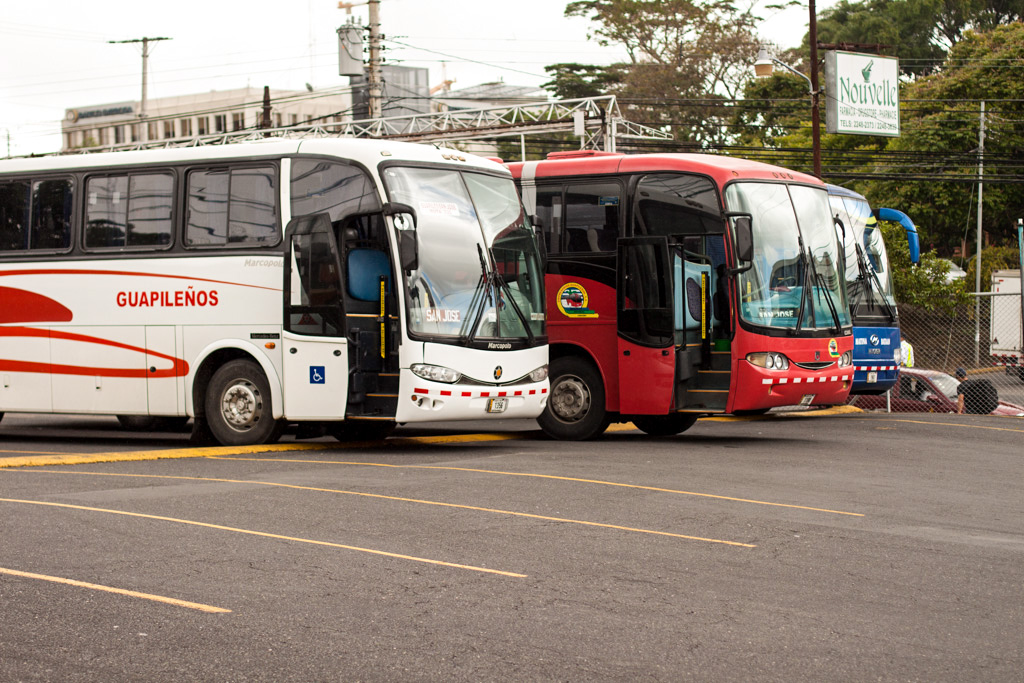
Yes, when I began to read yours and it said “If you’re in a hurry, skim it!” I immediately thought, There’s one of the dangers right there: being in a hurry. Then I saw you included it in your suggs. You’ve become seasoned travelers in a short time!
Thanks Jon! It’s tough, but we always try to slow down and absorb the beauty of nature and the culture around us when traveling.
Hi Landon and Alyssa,
Great post.
I fully agree with #3, this is when most things happen.
And for #4, I would say that you should keep the bag with valuables (cameras, …) always on your back or secured. Tricks are countless to draw your attention and then use it!
But on the other hand, scams are rather seldom, and in my experience, being a bit alert, you can avoid most of them…
Cheers
Gilles
Thanks for the comments Gilles. I agree, I’m really glad that thieves don’t show their face very often, but they’re out there and will find us as soon as we let our guard down!
We fortunately haven’t seen anything too bad yet, but we are headed to South-East Asia in a few months so I’m sure we will see our fair share! Probably the worst that has happened to us is when a guy kept pestering us to show us “where the locals eat” in San Juan, Puerto Rico and then demanding $10 for walking us the couple blocks. We gave him a couple bucks and thankfully the restaurant actually turned out to be pretty good!
That’s always annoying to have to pay for a guide you didn’t want and that didn’t do $10 worth of work. Looking on the bright side, those types are the budding entrepreneurs of 3rd world countries!
I think you are right when you say there is no way to avoid every scam. We once travelled the world with two small children for almost a year without incident. Then my husband had his wallet stolen in Hamilton, New Zealand, of all places on the very last day of our trip. The joke was on the thief though. Because we were about to leave NZ and were running down our local currency there was only $10 in the wallet.
Scams are everywhere, even back home. Some are fortunate, and some sadly lose everything. Glad you fooled the thief!
Good list! We were scammed (not too badly) in Bangkok and were so annoyed. I would say be careful with number 6! Especially in Southeast Asia where taxi drivers and “random locals” are all working together to get you to believe something. We have gotten great tips from taxis and we have gotten totally scammed by them!
Thanks for the comment Evanne. You’re right, there’s usually a few people working a scam together to make it more believable – those tricksters!